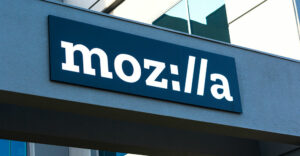
Linux and open source software are spreading out — cloud computing, mobile computing, supercomputing — and an increasing number of use cases large and small. One area where Linux and open source have history and continue to remain strong is banking and financial services, highlighted by the latest open source messaging technology in the space: the new OpenMAMA middleware messaging project and the AMQP messaging standard, recently released in version 1.0.
This strength of open source software, similar to what we’ve seen in cloud computing, bodes well for Linux and open source in a number of other key verticals, as well.
The recently announced OpenMAMA project is a high-performance messaging API intended as a universal, common messaging layer for a range of middleware. OpenMAMA, (“MAMA” stands for “Middleware Agnostic Messaging API”) is being hosted by The Linux Foundation and is open source under the LGPL.
OpenMAMA proponents cite the lack of a common connection among many different applications and multiple transports. Backers claim the middleware messaging technology will accelerate collaboration for multiple architectures and help organizations support event-driven applications while maintaining throughput and low latency.
Stamp of Credibility
Obviously, the financial services industry is interested in high-performance and speed. It is also an example of a case in which users are willing to pay a premium for performance, though we’ve seen economic conditions can make this a double-edged sword for open source software. Still, banking and financial services firms are among the most lucrative for open source software vendors, such as Red Hat.
Though most open source supporters would probably like to see even more code — and perhaps cash — contributed back into open source software projects, companies and developers, these financial firms’ use of open source is also a stamp of credibility. Backers of OpenMAMA include Bank of America, EMC, Exegy, Fixnetix, J.P. Morgan, Merrill Lynch, and NYSE Technologies.
The MAMA API actually dates back to 2002, when it was initiated as a way of allowing financial companies to support distribution of market data on tickers that were coming from different middleware. The API is credited with increasing collaboration and interoperability among systems and applications that were interconnected.
Now the OpenMAMA project will live alongside, and perhaps complementary to, another open source messaging technology that is also part of the financial services industry: Advanced Messaging Queuing Protocol. AMQP was originally intended to reduce the roadblocks to connecting and supporting different messaging middleware tools that have traditionally lacked flexibility and interoperability.
Though it took some time, the AMQP working group — a collection of financial services and technology heavyweights — recently released version 1.0 and still strives to enable interoperability among different systems regardless of operating system, network protocol, language or application.
The Spread of Devops
The use of OpenMAMA, AMQP and other open source software in financial services companies is indicative of another trend: the spread of devops, in which application development and application deployment via IT operations are combined. We hear from vendors involved in devops and continuous integration and management of applications that financial services organizations are among the early adopters. Devops are seen primarily among Web, technology and media companies thus far, but their adoption in financial services represents the front edge of devops moving to mainstream enterprise users.
Financial services enterprises — along with insurance, telecommunications, bioscience and pharmaceuticals, HPC, government and military verticals — are often among the same early adopters that have embraced open source software and virtualization. Thus, the industry may be dealing with a more informed, intelligent user community. This is a market that will likely base its use of technology and vendors on policy and procedure, rather than on how open source software crept into the enterprise via developers and system administrators over several years.
Based on the divisional and subsidiary deployments of devops evident more than a year ago, leadership is indeed aware, watching and ready to implement devops-type practices and technologies — many of which will be open source — more broadly throughout their organizations.

















































